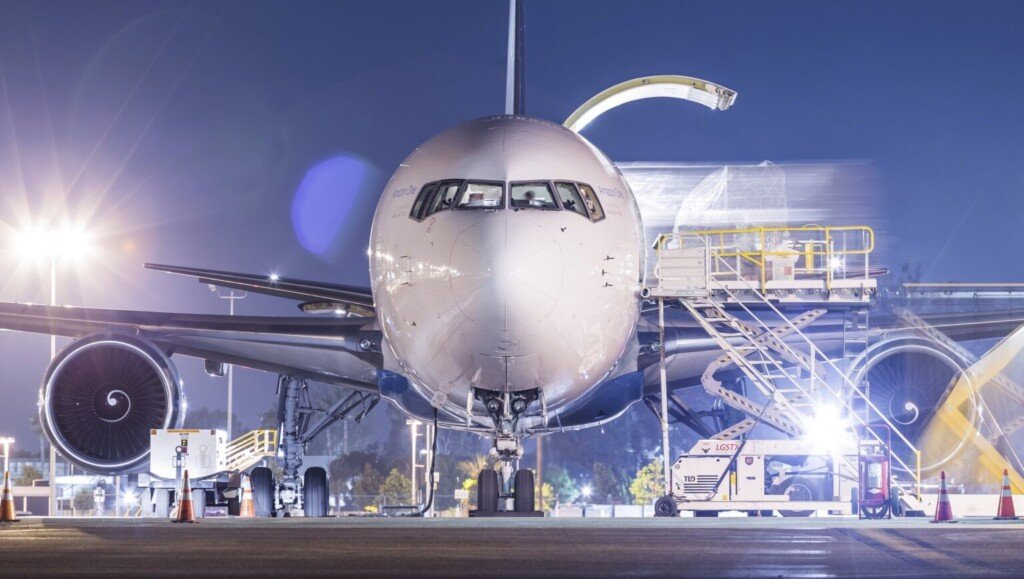Air cargo handling process is a crucial and indispensable part of an airport, airline, and/or a freight forwarder who provides cargo handling and transportation services. And, to qualitatively manage the process, certain prerequisites must be met, such as efficient strategies and procedures, competent cargo staff, cargo information systems, technology and world-class infrastructure with enough capacity and excellence in process management. Here, we take a look at the state-of-the-art infrastructure and world-class cargo facilities at the country’s prominent air hubs for proper transport, storage and delivery to the end-users.
Ritika Arora Bhola
Although the air cargo industry has scaled up its capabilities, collaboration and readiness in the past couple of months, and COVID-19 vaccines undergoing worldwide distribution, we still live in a world with a lot of unknowns. As new vaccine requirements, purchase deals and regulatory approvals are announced every day, the air cargo value chain stakeholders together need to work hand-in-hand to be agile enough to deliver vaccines safely at scale.
In order to continue to improve preparedness, vaccine manufacturers need to share information needed by LSPs/service vendors as early as possible to allow them to make needed investment in time, while air cargo players should ensure their sub-contractors and supply chain partners receive the right level of information as early as possible, and together the industry needs to adopt, or reinforce if already adopted, a local air cargo community approach to strengthen collaboration at levels across the system.
Meanwhile, security and cyber-security measures need to be put in place to avoid theft and counterfeit; dry ice, active containers, trained staff, and cold chain space availability should be secured early; and infrastructure investment decisions should be made as early as possible.
Visibility also needed to be improved— with stakeholders mapping out their capabilites; the use of tracking and monitoring devices and the roll-out of digital solutions.
Delhi International Airport Ltd (DIAL)
DIAL recorded over ‘One Million’ MT air cargo annually, with over 20 freighters providing continued services to and from Delhi Airport. The airport holds 30 per cent of India’s total air cargo business.
Cargo Infrastructure:
- The Cargo Terminals has vast warehouse area of approximately 180,000 sq mt and cargo handling capacity of over 1.8 million MT per annum; scalable to 2.3 million MT per annum.
- Both cargo terminals at DIAL have Good Distribution Practice (GDP) certified state-of-the-art temperature-controlled facilities with a capacity to handle 1.5 lakh MT cargo annually; equipped with advanced technology and specialised handling equipment to process the temperature-sensitive cargo ranging from -200C to +250C, and other add on services.
- Availability of 3 operational runways and 12 freighter bays offer the required airside infrastructure. The fourth runway is currently under development.
- Cargo complex has separate zones and terminal building for EXIM cargo with 6 entry/exit gates to provide easy entry, exit as well as maneuvering of vehicles. There are total 124 (Import– 50 and Export– 74) truck docks at both cargo terminals to facilitate easy and efficient loading and unloading of cargo.
- There’s hydraulic dock levellers facility and sufficient parking space available for over 1000 trucks in the cargo complex.
- Truck docks are equipped with Air Curtains to maintain temperature of cargo, while use of thermal blankets mitigates temperature excursions.
- The airport also has Cool Dollies to maintain the unbroken temperature cool chain while transferring cargo from terminal to the aircraft, and vice-a-versa.
Additionally, Delhi Airport’s QR code-based e-Gate Pass facility will provide an automated process for paper documentation and reduce human interface, thereby making the fast movement of imported vaccine deliveries.
Above that, Delhi Airport’s dedicated Transhipment Excellence Centre spread over an area of 6,500 sq mt at the airside will help in the seamless and efficient movement of vaccines through transshipment.
Delhi Airport also has dedicated terminal facilities to handle express cargo shipments. With seamless operations and simplified procedures in place, processing of express cargo is performed in a few hours.
As a cargo hub airport of the region, DIAL has developed first-of-its-kind on-airport warehousing facilityin India— Airport Cargo Logistics Centre (ACLC) with over 30,000 sq mt of warehousing space.
GMR Hyderabad International Airport Ltd (GHIAL)
GMR Hyderabad Air Cargo (GHAC), the 100% subsidiary of GMR Hyderabad International Airport Ltd (GHIAL) is located at the epicentre of the vaccine production region of the country, and hence is a key stakeholder in the global vaccine logistics, supported by relevant facilities such as modern temperature-sensitive pharma and vaccine storage and processing zones.
GMR Hyderabad Air Cargo Terminal at GHIAL is India’s first integrated cargo terminal with international and domestic pharma zone under the same roof. In fact, it is among the most awarded cargo terminals in the country for its infrastructure and operational excellence.
Cargo Infrastructure:
- GHAC boasts India’s first Pharma Zone with GDP-certified temperature-controlled facility for handling temperature-sensitive cargo. The terminal is equipped with various temperature zones— from -200C to +250C with state-of the-art equipment and Cool Containers to cater to product-specific requirements.
- The freighter parking bays are just 50 mt away from the terminal, thereby minimising the ramp exposure timing and ensuring quick turnaround of aircraft.
- GHAC recently launched latest Cool Dollies—a mobile refrigeration unit for airside transportation—designed to eliminate any temperature excursions and to maintain an unbroken cool chain.
- GHAC also boasts one of India’s largest storage facilities for Cool Containers like Envirotainer, C-Safe, Unicooler and Va-Q-tainerwithin its premises to make sure the service is available for customers on a 24×7 basis.
- All the stakeholders and regulators are located at GHAC’s cargo village in the modern warehousing and office facility called Cargo Satellite Building.
In addition, GHAC is upgrading its infrastructure to double the capacity on both landside and airside to handle the upcoming surge in volumes. The cargo handler has asp taken several paperless initiatives— e-Reception, e-OOC, e-LEO, e-AWB, etc. to minimise human interface and provide contact-less service to customer.
Bangalore International Airport Ltd (BIAL)
Bangalore International Airport Ltd (BIAL) builds, owns and operates the Kempegowda International Airport Bengaluru (KIAB). The airport plays a key role in driving the economy of the Karnataka region and adjoining areas— offering a wide air-route network, with over 37 passenger airlines and 14 cargo airlines connecting Bengaluru to the rest of the world. It is currently the busiest airport in South India and the third largest in the country.
The total cargo handling capacity at BIAL is 570,000 MT— the highest cargo capacity at an airport in South India.
Cargo Infrastructure:
- BIAL hosts India’s first integrated on-airport Perishable Handling Centre (PHC)– AISATS CoolPort. This 11,000 sq mt facility has a handling capacity of 40,000 MT per annum and temperature zones ranging from -250C to +250C under the same roof.
- The second cold zone at BIAL is located at Menzies Aviation Bobba Bangalore, measuring 800 sq mt, with the capacity to handle 20,000 MT per annum i.e. 20 ULD Pallets from 150C to 250C and 2 ULDs for 20C to 80C.
- There are total of 108 Code C parking aprons, of which 15 are contact stands (International– 8 and Domestic– 7). Besides, there is a dedicated team for apron safety and operations management.
- BIAL’s bonded warehouse within the cargo facility is a first-of-its-kind on-airport public bonded warehouse in any Indian air hub, operational on a 24×7 basis. This facility supports the re-export of goods, enables long-term storage of bonded cargo, assists partial clearances, allows value-added services by the supply chain, etc. from the airport campus.
- BIAL is the first airport in India to be IATA e-freight compliant, and is also the only airport in India to have both terminal partners certified with IATA Safety Audit for Ground Operations (ISAGO).
Most recently, BIAL inaugurated the country’s first dedicated Express Courier Terminal which housea some of world’s best-known courier players such as DHL Express, UPS, EICI, and FedEx, thereby offering additional benefits to the Bengaluru Metropolitan Region and its customers.
Mumbai International Airport Ltd (MIAL)
GVK MIAL managed Chhatrapati Shivaji Maharaj International Airport (CSMIA) has been working efficiently in providing vital support in transporting essential cargo, and now COVID vaccine movements. CSMIA has the largest gateway for pharma and agro products in India with massive airport-based cold chain facilities operated by its business partner Cargo Service Centre (CSC), the leading cargo handling service provider in India, which also tops in pharma cargo operations in the country. It is the largest airport-based pharma facility in Asia that can hold capacity of pharma cargo meant for 8 dedicated cargo freighters.
MIAL is also India’s largest hub for Envirotainer movements with over 60 power outlets for EXIM shipments and an exclusive Envirotainer Stationdealing with storage and maintenance of both e-type and t-type active containers. Since start of operations, the Envirotainer Station has processed over 2000 active containers.
Cargo Infrastructure:
- The CSC operated Pharma Excellence Centreis spread over an area of 4,000 sq mt with an annual handling capacity of 350,000 tonnes— supported by 140 ULD storage positions and 50 Power Outlets for charging active containers.
- The facility also hosts 6 dedicated truck docks for round the clock cargo acceptance and quick turnaround of trucks, 2 release gates for ULD exit, 2 X-ray machines, 6 cold chambers offering +20C to +80C storage for 12 main deck ULDs.
- The CSC facility also boasts one-of-its-kind airport-based import cold zone for both pharma and perishables, offering +150C to +250C one-time storage of up to 860 tonnes and cold chambers offering +20C to +80C one-time storage of up to 300 tonnes.
- The facility is powered by electronically monitored temperature management systems with alarm alerts and power backup.
- MIAL is the first airport in India and third in Asia to obtain IATA CEIV Pharma accreditation, a global industry recognition supporting the air transport industry and is in full compliance with pharmaceutical manufacturers requirements.
Additionally, MIAL has an indigenous temperature-controlled transport solution Cooltainer for transport of pharmaceutical products on the airport tarmac. The Cooltainer can accommodate two main-deck or two lower-deck pallets or a combination of both offering temperature range of +15°C to +25°C or +2°C to +8°C as per product requirement.







